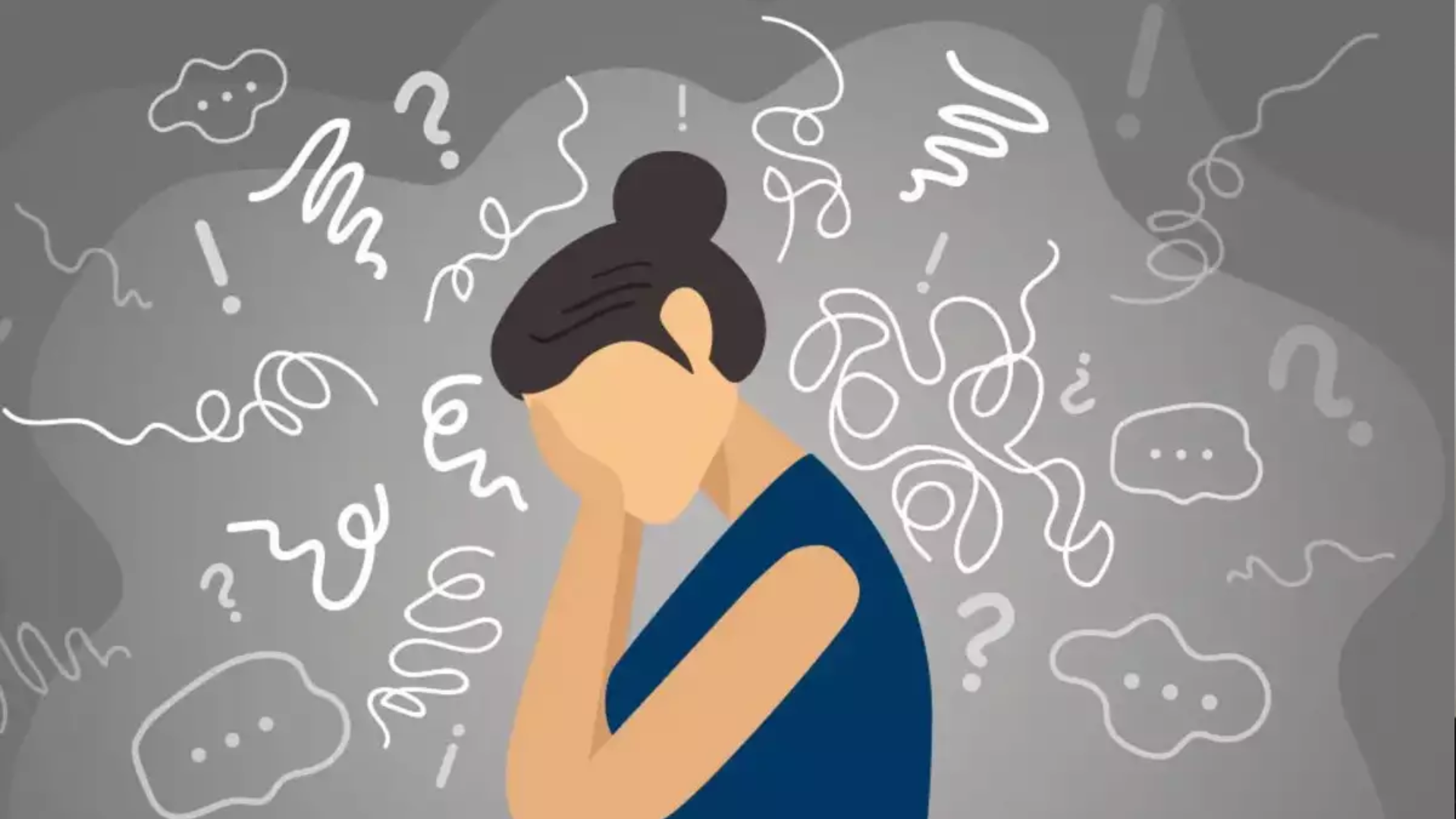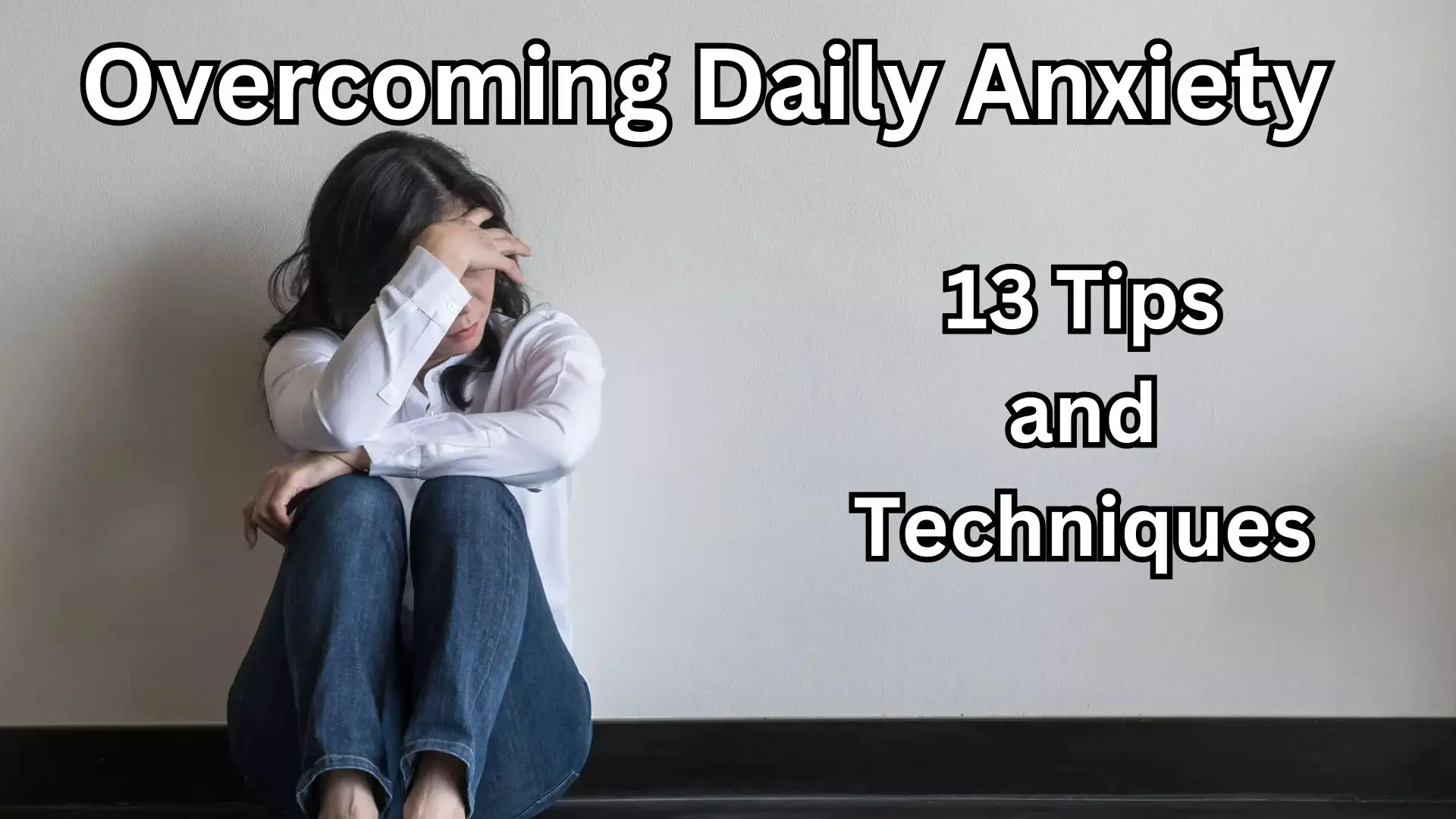Having feelings of anxiety is quite a natural thing for humans, and it is quite possible that you too might have experienced anxiety at some point in your life but had no idea how to deal with it. Don’t Worry! Today, we’ll be discussing 13 tips for overcoming daily anxiety and living more confident lives.
What exactly is anxiety?
Have you ever had an unpleasant thought that made your heartbeat faster all of a sudden? Or have you ever struggled all night with your sleep before an important upcoming exam or felt nauseous thinking about the pressure of attending a social event?
Anxiety is defined as a feeling of apprehension or tension about a future event. It is a natural response of the human body to perceived stress. Short-term anxiety might not cause a lot of trouble, but when this anxiety gains so much power that it starts affecting our personal and professional lives, that’s when the trouble begins.
Constant feelings of anxiety on a long-term basis can affect our mental and physical health negatively.
Anxiety can be caused by different factors, for example, genetic factors, life experiences, and personality traits. All of these factors can be reasons for a person to feel anxious.
What are the common symptoms of anxiety?
Some common symptoms of anxiety are:
- faster breathing
- headaches, backaches, or other pains
- sweating
- a churning feeling in your stomach
- grinding your teeth, especially at night
- sleep disturbances
- dizziness
- feeling restless or unable to sit still
- changes in sex drive
- The urge to use the toilet more or less often
- nausea or feeling sick
- fast or irregular heartbeat
- pins and needles
- having panic attacks.

Tips for overcoming daily anxiety
1. Question your negative thoughts
- Notice when a negative thought comes into your mind.
- Check the validity of that thought. “Is this thought really true?”
- Ask yourself, “What is the possibility of this thought becoming a reality?”
- Now, replace the negative thought with a positive one.
2. Practice deep breathing
Breathing exercises are really helpful in managing anxiety in everyday life. Try the following breathing techniques to manage anxiety:.
Try the 4-4-8 breathing technique.
- Taking a deep breath, draw it into your abdomen as you count to four.
- Count to four while holding your breath.
- Let go of your breath as you count to eight.
- Do each step multiple times.

3. Exercise
Daily exercise can play a vital role in managing anxiety. If exercise is something that takes a lot of effort from you, that’s okay; there is no need to do intense workouts. In fact, sometimes all it takes is a 10-minute walk to get rid of your anxiety. Exercises like cycling are also helpful in managing and reducing anxiety.

4. Try Aromatherapy
Aromatherapy is gaining a lot of popularity as an anxiety management technique. And its not all noise; aromatherapy has indeed proven to be helpful in managing anxiety and its symptoms. Natural aromas like lavender, chamomile, and sandalwood may prove very calming, whether they are in the form of essential oils, incense, or candles.
5. Grounding techniques
Use your senses to overcome anxiety
-
- Identify 5 things you can see
- 4 things you can touch
- 3 things you can hear
- 2 things you can smell
- 1 thing you can taste
6. Healthy Diet
A long-term plan to manage anxiety would involve taking supplements or changing your diet. Based on research, specific foods and supplements may be beneficial when used alongside more comprehensive anxiety treatments. These supplements may include:
-
-
- ashwagandha
- omega-3 fatty acids
- kava kava
- lemon balm
- valerian root
- green tea
-
Read More- Stress Management Tips: How to Deal with Daily Stressors?
7. Journaling
Journaling is a quick and easy way to overcome anxiety in everyday life. It can have a number of benefits, including:
-
-
- It helps reduce anxiety and depression
- Provides clarity of thought
- Writing down our thoughts is a great way to release overwhelming emotions, specially anger.
- Maintaining a journal can help you identify what stresses you out and what makes you feel better.
-
8. Socializing
-
-
- Meeting and interacting with the people you are comfortable with can have an immense positive impact on your mood.
- Talking to a loved one can make you feel calmer.
- Some people find it difficult to socialize due to a number of reasons, and that’s okay.
- However, talking to someone you’re close to, even for a few minutes, can really be helpful in managing anxiety.
-
9. Identify what triggers your anxiety
In order to overcome everyday anxiety, it is really important to identify what exactly triggers it in the first place. Anxiety triggers can be different for different people. For example, someone who is not very comfortable at social gatherings might feel anxious before an important social event. Or someone who has recently lost a loved one to death might feel anxious if another person they are close to gets sick.
Identifying your anxiety triggers will help you understand and learn possible ways to deal with those triggers. For example, the person who gets anxious before attending a social event can try making a step-by-step plan about what they’ll wear for the event, who will accompany them, at what time they’ll leave for the event, and whether there will be someone in the event whom they are comfortable with. Will it be possible for them to return home whenever they want?
All these questions can help us plan our tasks and manage anxiety triggers in a better way.
10. Learn to say “no.”
Saying no can sometimes be difficult, specially when a loved one makes a request. But its also important to understand that we cannot be available for everyone every time. Sometimes, you need to spend some time with yourself and prioritize one thing over another, and there’s nothing wrong with it.
Not being able to deny a request that makes you uncomfortable can cause anxiety. This is why we all need to maintain our healthy boundaries. Learning when to say “no” can really help us manage and overcome our daily anxiety.
11. Try not to skip meals
Skipping meals can make your anxiety worse, as it leads to the release of the stress hormone cortisol. It is true that anxiety can make you feel nauseous, and the thought of eating anything in such a situation can make you even more bothered. However, to manage the levels of cortisol in your brain, it is important to take small, healthy meals throughout the day.
12. Live in the moment
Its true that anxiety can make it difficult to live in the present moment. It makes us worry about what is to come, the upcoming project, the monthly electricity bills, the exams, and the social gatherings that you don’t want to be part of. Anxiety is undoubtedly tiring, but its really important to take control over it and try to live in the present moment.
-
-
- Focus on one thing at a time.
- Try not to burden yourself with too many tasks at once.
- Take it one step at a time.
- Set up realistic goals for every new day.
-
13. Try therapy
Anxiety can be managed through consistent effort from our end, but if the symptoms have been present for more than 2 weeks and are affecting your daily life and you feel that it is difficult to manage them on your own, then you can always consult a professional therapist as per your convenience. A therapist can help guide you in a better manner and can help you identify your anxiety triggers as well as possible ways to manage them.
A Spirico Summary
Anxiety is a natural response of the human body to perceived threats and stressors. Anxiety can be caused by genetic, environmental and personality-related factors, and it can have a number of symptoms such as nausea, headache,rapid heartbeat, sweating, etc.
Activities like deep breathing, exercise, a healthy diet, maintaining healthy boundaries, and more can help overcome daily anxiety. It is important to identify what triggers your anxiety and learn what you can do to better manage it. If you find it difficult to manage anxiety on your own, you can try talking to a mental health professional.
